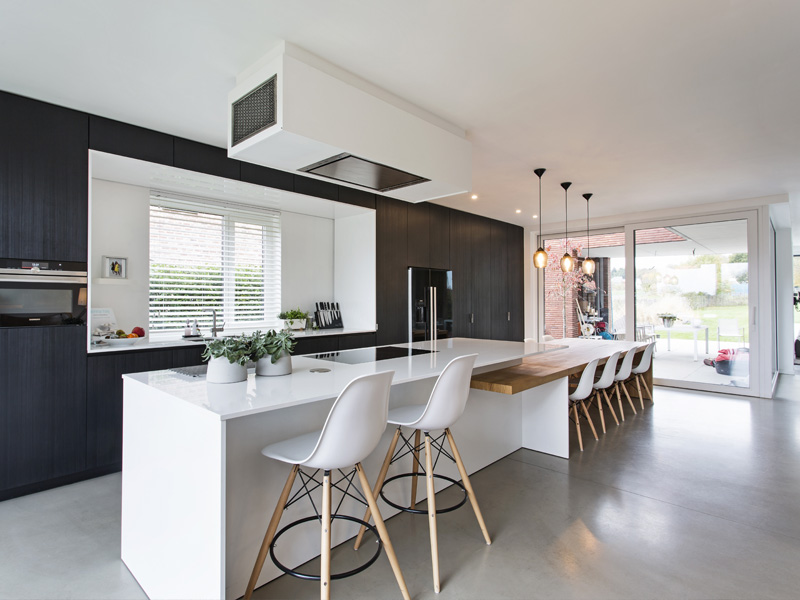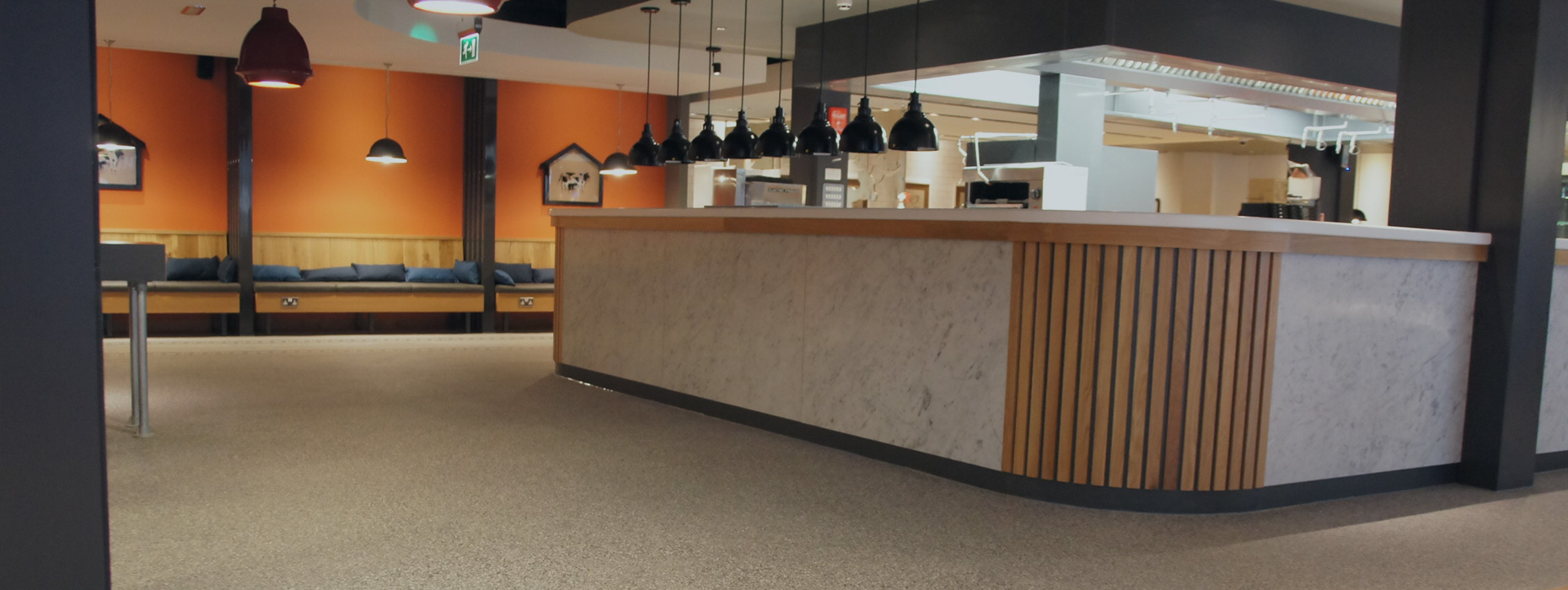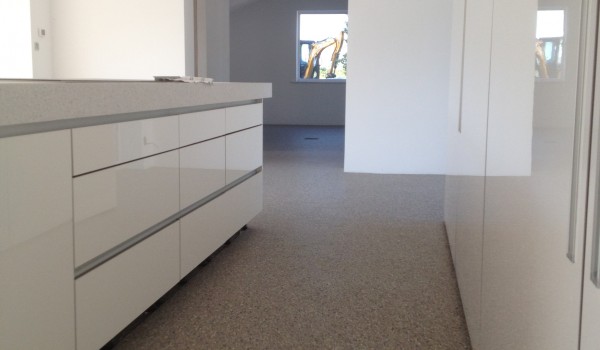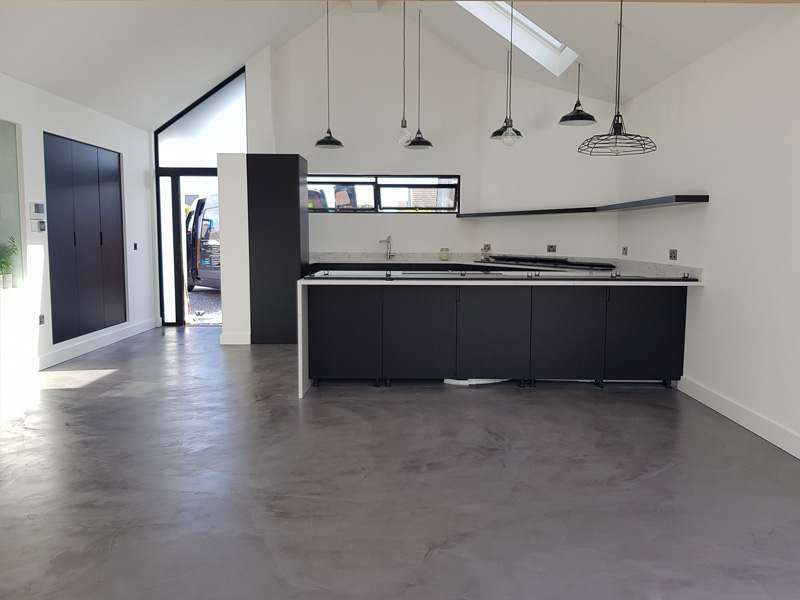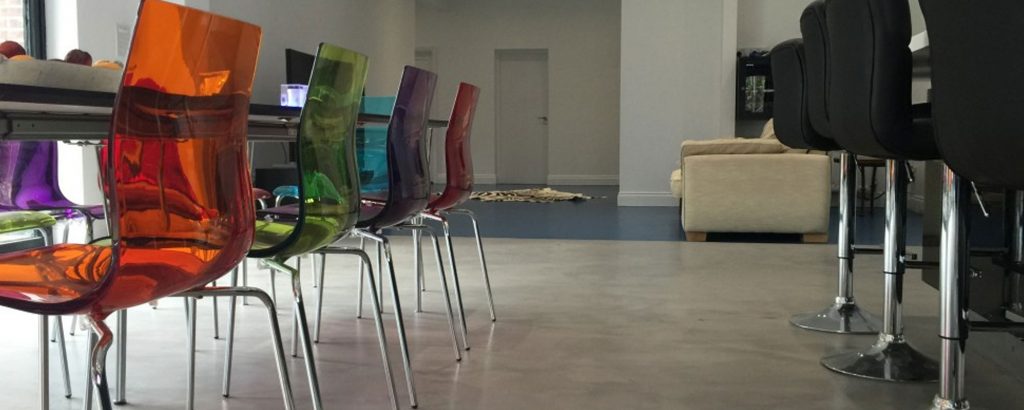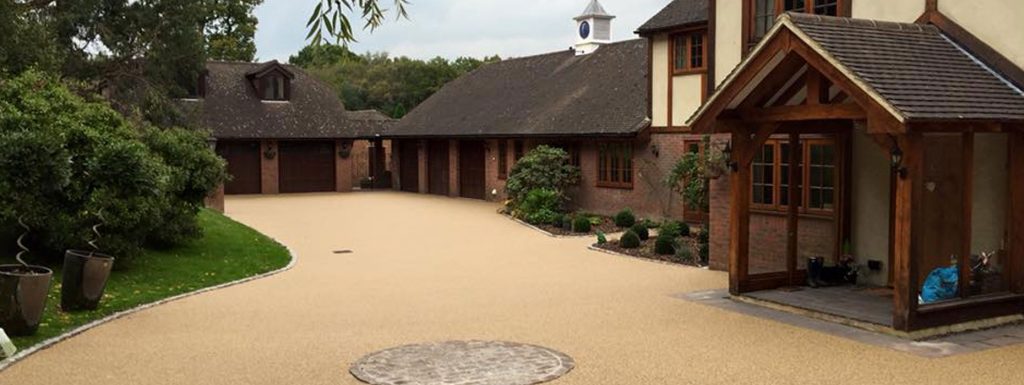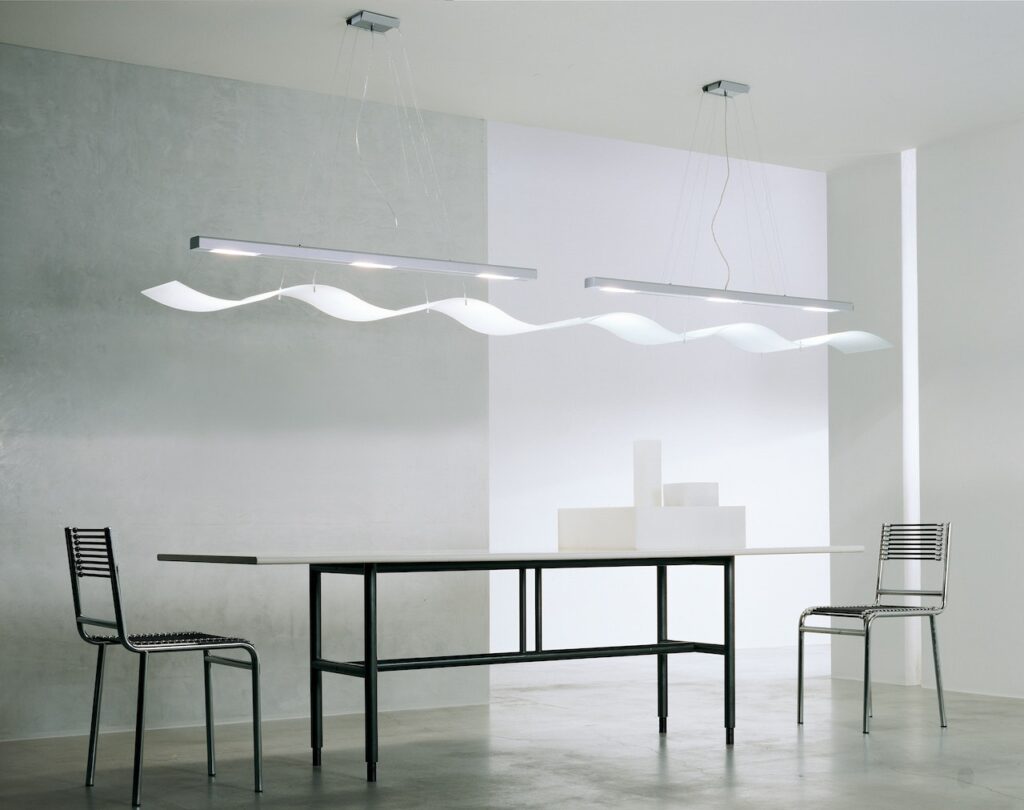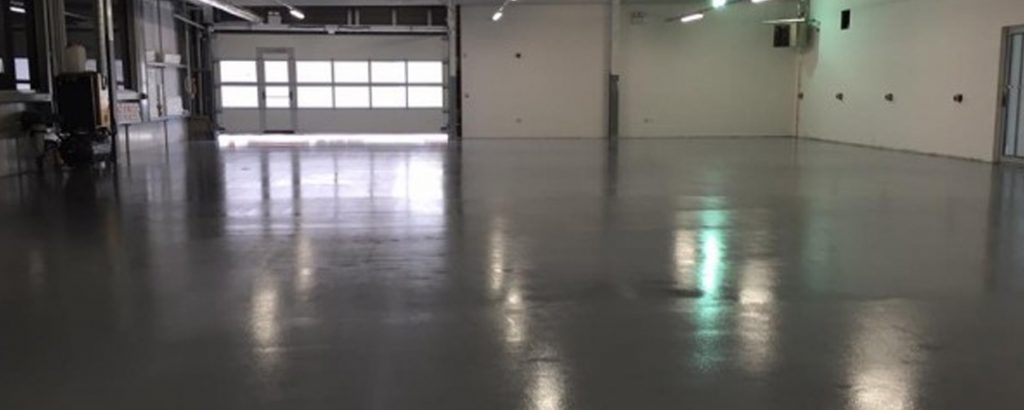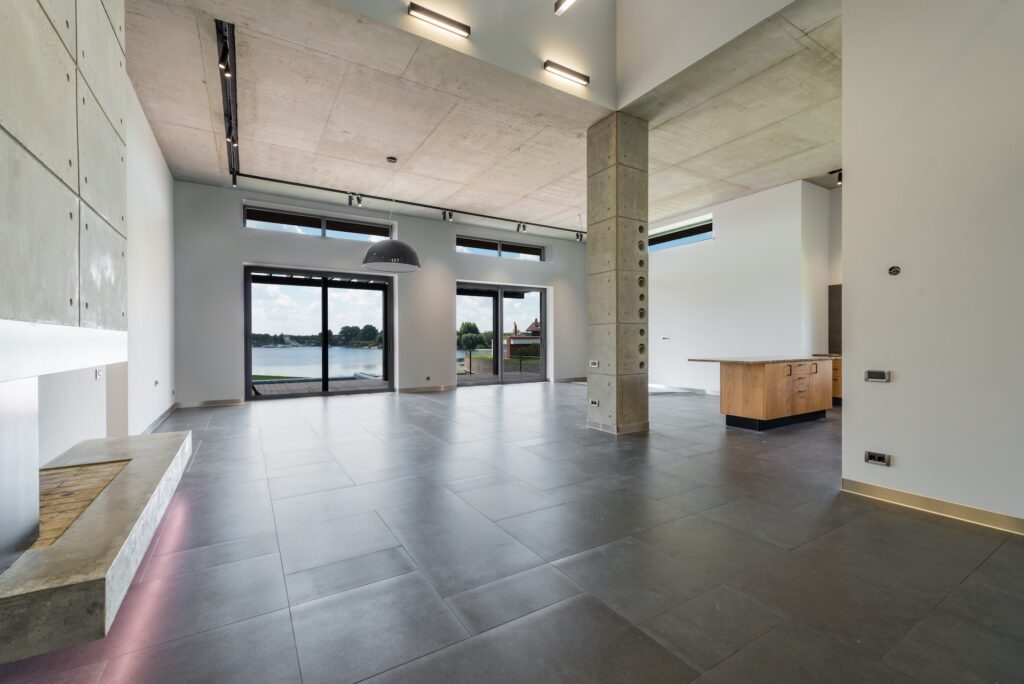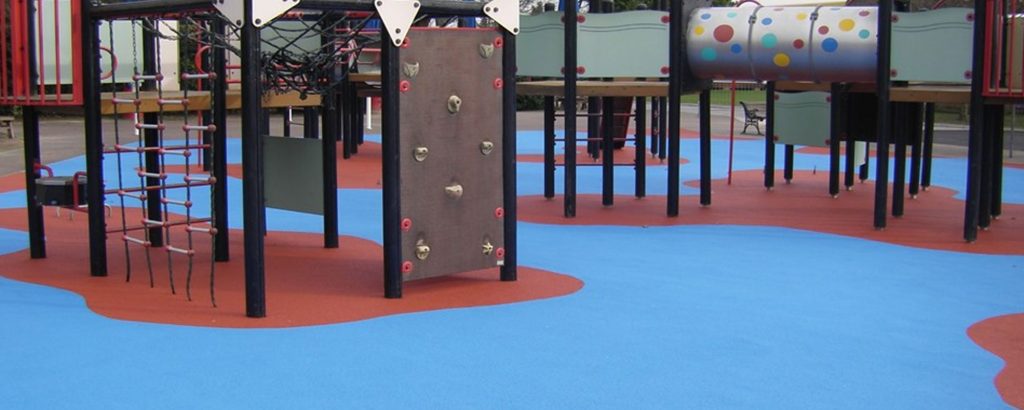Flooring has evolved considerably in the last few years – and there are several exceptional alternatives to conventional tiles, lino or wood!
Kitchen floors must work hard and resist steam, heat, spills, foot traffic and high temperatures while being non-slip and ideally soft enough to cushion a fall or prevent dropped crockery from smashing.
Today we’ll introduce some of the most popular Flexflooring Kitchen Flooring Solutions to inspire you to consider something a little different for your kitchen renovation project.
The Pros and Cons of Kitchen Flooring Options
First, let’s talk about those common kitchen flooring materials and some of the inherent problems (and costs) that can be difficult to avoid.
Kitchen Floor Tiling
Tiles are available in numerous materials, some better suited to a busy kitchen than others.
Ceramic tiling is made with natural clay and is durable and resistant to stains from spilt food or ingredients.
The drawback is that ceramic flooring is hard and cold and can be susceptible to chips or cracks, which means lifting large sections of the floor to relay new tiles and grout.
Natural stone tiles are a higher-end material and can be costly. However, granite, marble and slate stone floors can provide a classic, heritage feel.
Unfortunately, natural stone soaks up water and liquids, leading to staining. One remedy is to have a sealant applied to try and preserve the appearance of the stone tiles – although you must repeat this often.
Hardwood Kitchen Flooring
Hardwood floors were a popular flooring option in the past, but they aren’t the best choice for a kitchen or bathroom because they don’t cope well with moisture.
Solid hardwood or engineered wooden flooring is fairly easy to scratch or dent, can be very expensive to replace, and degrades over time.
Concrete Flooring in Kitchens
Concrete floors are a more niche flooring material, often used in ultra-modern renovations or conversions with a stark, exposed brickwork aesthetic.
There are benefits since concrete is low-cost, long-lasting, and can be polished or stained to give it a less industrial feel.
However, concrete is very hard and cold, similarly to ceramic tiles, so it isn’t a great solution for families with children – a fall on concrete can be very serious.
Lino and Vinyl Kitchen Floors
Our final traditional flooring materials are linoleum or vinyl.
Linoleum (or lino) was used in countless house decoration projects in the 60s and is made with linseed oil. It’s environmentally friendly, affordable, and easy to clean.
The challenge is that a lino floor in a kitchen can be susceptible to damage and often ends up with curling edges if you have any water spillages or leaks.
Vinyl has a diverse appearance but differs from lino because it is artificially manufactured and designed to manage surface spills and steam.
The problem with vinyl is that, while it isn’t an expensive kitchen floor, it needs replacing at least once every ten years or so, as it will fade and wear with ongoing use.
The Best Modern Kitchen Flooring Alternatives
As resin flooring specialists, the Flexflooring team has seen a substantial increase in the use of resin flooring for domestic housing, both in new developments and renovations.
Resin overcomes all of the problems associated with kitchen flooring and is available in a limitless array of colours, textures and finishes to suit your decor scheme.
Properties of Resin Kitchen Floors
Among the many advantages of resin in a kitchen setting, this advanced material provides unrivalled durability and performance:
- Longevity: resin is poured onto a subbase and has an extremely strong bond – the flooring cannot lift, crack or shift, even in kitchens with heavy usage.
- Finish: a resin floor is fully resistant to all liquids and remains in perfect condition with a hygienic surface that is simple to clean.
- Safety: our kitchen floors are comfortable and slip-resistant, with a wide range of additives and surfacing solutions available.
The biggest advantage of resin flooring is that it is incredibly tough and can last multiple times the lifespan of any other floor surface, with the ability to withstand extreme heat, pressure and weight.
These benefits demonstrate why resin is so widely used in commercial kitchens, to ensure staff safety and provide a low environmental impact, long-term flooring solution designed to cope with a kitchen environment.
Advanced performance properties and the huge variety of colours, finishes and textures make resin an excellent choice for domestic or commercial kitchens.
Types of Resin Kitchen Flooring
One of the best aspects of a resin floor is that it is entirely bespoke – you can pick and choose between colour ranges and shades to match your style and opt for different flooring densities and features as you wish.
Below we run through the four core resin flooring options best suited for kitchens.
PU Comfort Resin Kitchen Floors
Also known as liquid vinyl, a PU kitchen floor can be blended in any colourway required and is poured to give a seamless, easy-care finish.
The surface is slightly padded, so it lends itself well to residential or commercial kitchens and is comfortable to walk on.
Stone Quartz Screed for Kitchens
Our next option is made with a fine, delicate aggregate, blended with epoxy before being poured – there is an equally broad colour palette available.
This type of kitchen floor is considerably robust, often used in heavy-duty kitchen spaces, but can also be designed as a decorative feature.
Pour-Filled Stonex Quartz Carpet
Quartz carpet kitchen floors are installed with a coloured aggregate, laid between one and two millimetres thick.
The close-compacted aggregate cures to provide a flawless surface, with no gaps or seams that can accumulate dirt, dust and food particles.
Microcement Kitchen Flooring
A microcement floor provides a more minimalist finish and is perfect for hygiene-conscious kitchens, with the range of colourways you expect from a custom resin floor.
As a more affordable alternative to polished concrete, this type of resin kitchen floor is popular due to the tailored finish and longevity while requiring little effort to maintain.
Expert Advice on Alternative Kitchen Flooring
Please contact Flexflooring at your convenience if you require more information about any of the alternative kitchen flooring options discussed here!
Our experienced consultants will be delighted to share examples of previous projects to help you explore the achievable finishes and all the practical benefits of a hardwearing, high-performance flooring solution.
